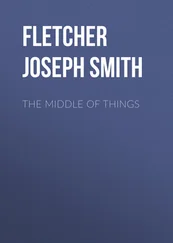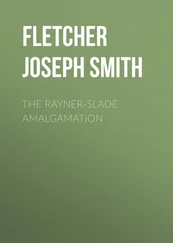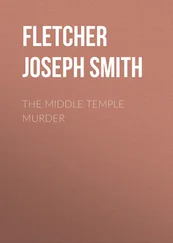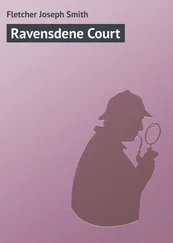Joseph Fletcher - In the Mayor's Parlour
Здесь есть возможность читать онлайн «Joseph Fletcher - In the Mayor's Parlour» — ознакомительный отрывок электронной книги совершенно бесплатно, а после прочтения отрывка купить полную версию. В некоторых случаях можно слушать аудио, скачать через торрент в формате fb2 и присутствует краткое содержание. Издательство: Иностранный паблик, Жанр: foreign_prose, Классический детектив, foreign_detective, foreign_antique, на английском языке. Описание произведения, (предисловие) а так же отзывы посетителей доступны на портале библиотеки ЛибКат.
- Название:In the Mayor's Parlour
- Автор:
- Издательство:Иностранный паблик
- Жанр:
- Год:неизвестен
- ISBN:нет данных
- Рейтинг книги:3 / 5. Голосов: 1
-
Избранное:Добавить в избранное
- Отзывы:
-
Ваша оценка:
- 60
- 1
- 2
- 3
- 4
- 5
In the Mayor's Parlour: краткое содержание, описание и аннотация
Предлагаем к чтению аннотацию, описание, краткое содержание или предисловие (зависит от того, что написал сам автор книги «In the Mayor's Parlour»). Если вы не нашли необходимую информацию о книге — напишите в комментариях, мы постараемся отыскать её.
In the Mayor's Parlour — читать онлайн ознакомительный отрывок
Ниже представлен текст книги, разбитый по страницам. Система сохранения места последней прочитанной страницы, позволяет с удобством читать онлайн бесплатно книгу «In the Mayor's Parlour», без необходимости каждый раз заново искать на чём Вы остановились. Поставьте закладку, и сможете в любой момент перейти на страницу, на которой закончили чтение.
Интервал:
Закладка:
"Well," continued Hawthwaite, "as regards that, there are all sorts of knives. It would be a long, thin weapon, said Dr. Wellesley; and Dr. Barber, he suggested that it was the sort of wound that would be caused by one of those old-fashioned rapiers. And they did say, both of them, that it had been used—whatever the weapon was—with great force: gone clean through."
Peppermore was listening to these gruesome details with all the ardour of the born news-seeker. But Brent turned away.
"Is there anything I can do?" he asked.
"Why, there isn't," replied Hawthwaite. "The fact is, there is nothing to do outside our work. The doctors are doing theirs, and there'll have to be an inquest of course. I've sent to notify Mr. Seagrave, the coroner, already, and I'm having a thorough search made of the Moot Hall, and making inquiries about his Worship's last movements. There's nothing more can be done, at present. One of my men has gone round to tell his landlady. It's a fortunate thing, Mr. Brent," he added with a knowing look, "that your cousin wasn't a married man! This would have been a fine thing to have to break to a man's wife and family! About relations, now, Mr. Brent, you'll know what to do? I know nothing about his private affairs."
"Yes," answered Brent. "But I'm much more concerned, just now, about his public affairs. It seems to me—indeed, it's no use trying to disguise it—that this has arisen out of the fact that as Mayor of Hathelsborough he was concerning himself in bringing about some drastic reforms in the town. You probably know yourself that he wasn't popular–"
"Yes, yes, Mr. Brent," interrupted Hawthwaite.
"But then, you know, murder–! I can't think there's anybody in this place would carry their likes to that length! Murder!"
"You don't know," said Brent. "But, at any rate, I'm my cousin's nearest blood-relation, and I'm going to find out who killed him, if it's humanly possible. Now who is there in the town who knows most about his public affairs—who is there who's most conversant with whatever it was that he had in hand?"
Hawthwaite seemed to consider matters.
"Well, Alderman Crood, the tanner, is the Deputy-Mayor," he replied at last. "I should say he's as good a man to go to as anybody, Mr. Brent. He's chairman of the Financial Committee too; and it was in financial matters that Mr. Wallingford was wanting to make these reforms you've mentioned. If there's anything known—I mean that I don't know—Alderman Crood's the most likely man to know it."
"Alderman Crood," remarked Peppermore softly, "knows everything that goes on in Hathelsborough—everything!"
"So to speak; so to speak!" said Hawthwaite. "There are things of course–"
"Where does Alderman Crood live?" asked Brent. Already he was moving towards the door. "As I can do nothing here, I'll go to him at once. I'm not going to leave a stone unturned in this matter, superintendent."
"Quite right, Mr. Brent, quite right! Neither will I," asserted Hawthwaite. "Alderman Crood lives by his tannery—the far end of the town. Anybody'll show you the place, once you're past the big church."
"I'm going that way," remarked Peppermore. "Come with me, Mr. Brent." He led Brent out into St. Lawrence Lane, a narrow thoroughfare at the back of the Moot Hall, and turning a corner, emerged on the market-place, over which the night shadows had now fallen. "A terrible affair, this, Mr. Brent!" he said as they walked along. "And a most extraordinary one too—it'll be more than a nine days' wonder here. A deep mystery, sir, and I question if you'll get much light on it where you're going."
"You said that Alderman Crood knew everything," observed Brent.
"Ay!" answered Peppermore, with a short laugh. "But that isn't to say that he'll tell everything—or anything! Alderman Crood, Mr. Brent, is the closest man in this town—which is saying a good deal. Since I came here, sir, ten years ago, I've learnt much—and if you'll drop in at the Monitor office any time you like, Mr. Brent—mornings preferable—I'll give you the benefit of my experience: Hathelsborough folk, sir, are, in my opinion, the queerest lot in all England. But you want to see Alderman Crood—now, go to the end of the market-place, turn down Barley Market, and drop a hundred yards or so down the hill at the end—then you'll smell Crood's tan-yard, even if you don't see it. His is the big, solid-looking house at the side—you can't miss it."
The editor-reporter shot up an alley at his left, at the head of which was a lighted window with Monitor Office on it in black letters; and Brent went on his way to seek the Deputy-Mayor. As he passed Low Cross, and the east end of the great church, and turned into the wide, irregular space called Barley Market, he tried to analyse his feelings about the tragic event on which he had chanced without warning. He had left Fleet Street early that afternoon, thinking of nothing but a few days' pleasant change, and here he was, in that quiet, old-world town, faced with the fact that his kinsman and host had been brutally murdered at the very hour of his arrival. He was conscious of a fierce if dull resentment—the resentment of a tribesman who finds one of his clan done to death, and knows that the avenging of blood is on his shoulders from henceforth. He had no particular affection for his cousin, and therefore no great sense of personal loss, but Wallingford after all was of his breed, and he must bring his murderer to justice.
Alderman Crood's house, big, broad, high, loomed up across him as the odours of the tan-yard at its side and rear assailed his nostrils. As he went towards it, the front door opened a little, and a man came out. He and Brent met in the light of a street lamp, and Brent recognized a policeman whom he had seen in the Mayor's Parlour. The man recognized him, and touched his helmet. Brent stopped.
"Oh," he said, "have you been to tell Mr. Crood of what has happened?"
"Just that, sir," replied the policeman. "He's Deputy-Mayor, sir."
"I know," said Brent. "Then, he's at home?"
"Yes, sir."
Brent was going forward, but a sudden curiosity seized on him. He paused, glancing at the policeman suggestively.
"Did—did Mr. Crood say anything?" he asked.
The policeman shook his head.
"Nothing, sir, except that he supposed Superintendent Hawthwaite was seeing to everything."
"Did you happen to tell him that I was here?"
"I did, sir; I said his Worship's cousin from London had just come. No harm, sir, I hope?"
"Not a bit—glad you did," said Brent. "He'll expect me."
He said good night to the man and walked forward to Alderman Crood's door. It was like the house to which it gave entrance—very high and broad, a massive affair, topped by a glass transom, behind which a light, very dim and feeble, was burning. Brent felt for and rang a bell, and heard it ring somewhere far off in the house. Then he waited; waited so long that he was about to ring again, when he heard a bolt being withdrawn inside the big door; then another. Each creaked in a fashion that suggested small use, and the need of a little oil. The door opened, and he found himself confronting a girl, who stood holding a small lamp in her hand; behind her, at the far end of a gloomy, cavernous hall a swinging lamp, turned low, silhouetted her figure.
Something about the girl made Brent look at her with more attention than he would ordinarily have given. She was a tallish girl, whose figure would have been unusually good had it been properly filled out; as it was, she was thin, but only too thin for her proportions—her thinness, had she been three inches shorter, would have passed for a graceful slenderness. But Brent took this in at a glance; his attention was more particularly concentrated on the girl's face—a delicate oval, framed in a mass of dark hair. She was all dark—dark hair, an olive complexion, large, unusually lustrous dark eyes, fringed by long soft lashes, an almost dark rose-tint on her cheeks. And in the look which she gave him there was something as soft as her eyes, which were those of a shy animal—something appealing, pathetic. He glanced hastily at her attire—simple, even to plainness—and wondered who she was, and what was her exact status in that big house, which seemed to require the services of a staff of domestics.
Читать дальшеИнтервал:
Закладка:
Похожие книги на «In the Mayor's Parlour»
Представляем Вашему вниманию похожие книги на «In the Mayor's Parlour» списком для выбора. Мы отобрали схожую по названию и смыслу литературу в надежде предоставить читателям больше вариантов отыскать новые, интересные, ещё непрочитанные произведения.
Обсуждение, отзывы о книге «In the Mayor's Parlour» и просто собственные мнения читателей. Оставьте ваши комментарии, напишите, что Вы думаете о произведении, его смысле или главных героях. Укажите что конкретно понравилось, а что нет, и почему Вы так считаете.












